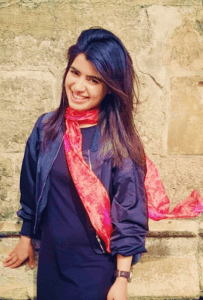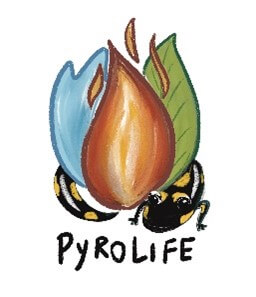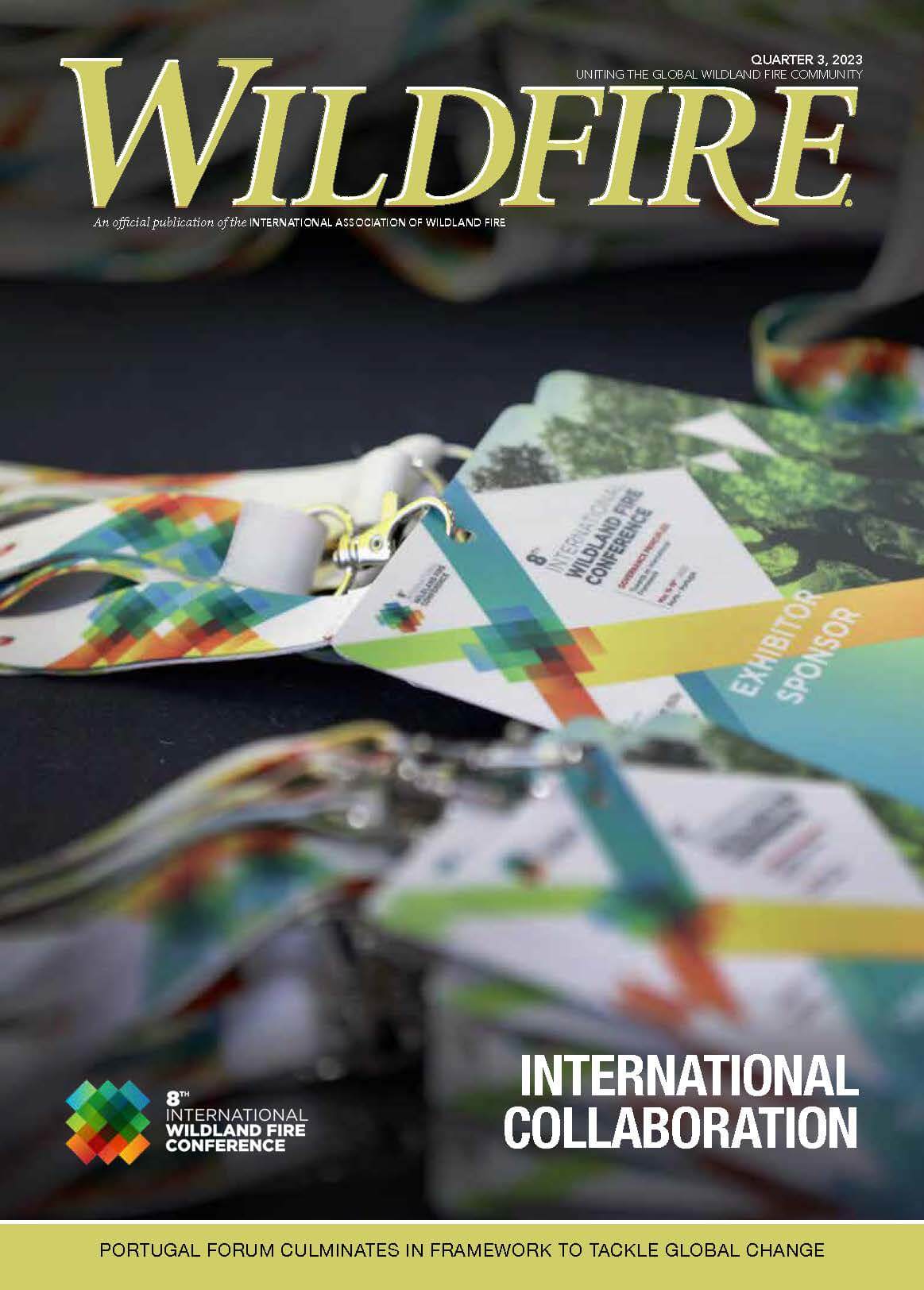Pyrolife: Towards an Integrated Fire Management
Review of the International Symposium held in June and July 2020
By Pooja Pandey
Intentional or unintentional, fire has always been either a good servant or a poor master, teaching people a way of living and adapting to its ashes and flames for centuries. But current adaptation strategies are changing with increasing fire incidents and with global climate change. Therefore, researchers and scientists are finding new ways to live with fire rather only than finding ways to escape it. A blend of physical science and social science techniques seems to be a good recipe to serve planet earth. Increasing fire incidents and other natural disasters all over the world are affecting not just the land but people’s livelihood and their existence.
So, what should be done in this regard? Suppress all such incidents, thereby increasing their future severity? No, rather we must find ways to live with fire, and this is why the Pyrolife Innovative Training Network came into existence. Pyrolife is not merely a project aimed at finding ways to deal with this issue but also to train the future generations of scientists and practitioners to create more fair and resilient societies and to carry the findings and philosophies of the project forward. Pyrolife Innovative Training Network made its public debut in June, 2020 where all 15 PhD candidates and consortium partners took part in the first Pyrolife International Symposium focusing on creating new international links across scientific fields and disciplines in order to understand what integrated fire management could look like across Europe and internationally. The symposium held a total of 15 multidisciplinary webinars that were open to all: more than 400 participants registered every Wednesday from different parts of the world. Though the main focus of Pyrolife is sharing knowledge within Europe, the symposium successfully shed light on lessons learnt from different disciplines in many parts of the world.
Dr. Cathelijne Stoof, architect of Pyrolife Innovative Training Network and member of the board of directors at the International Association of Wildland Fire, kicked off the Pyrolife International Symposium 2020 by introducing the project and discussing the need for diversity within the greater wildland fire community and showing paths on how to deal with the challenges as we adopt living with fire. With her reallife experiences in dealing with fire issues, she understands the importance of local knowledge and expertise and how it can be beneficial for planning and in science communication. Dr. Stoof explained how everyone is dealing with the same issue of fire but in a different context, and she suggested: “If we want to move from suppression to integrated fire management, we need to hear all the voices.”
HIGHLIGHTS FROM THE WEBINAR
Every Wednesday for an hour-and-a-half the experts and the Early Stage Researchers delivered their concerns and excitement on the topics and shared their experiences and opinions with the audience with the help of an interactive Q&A session at the end of every webinar. After an amazing introduction from Dr. Stoof, Marc Castellnou Ribau discussed the lessons learned from the Mediterranean and how they could be helpful for temperate Europe in the context of climate change. The webinar focused on how land management is an essential tool to decrease fuel loads and reduce vulnerability in extreme wildfires events in the Mediterranean region.
Does fire discriminate? No, fire sees no social boundaries, and yet different social groups experience fire events very differently. Danielle Antonellis, a senior fire safety engineer at Arup, drew our attention to fire safety inequality, its societal consequences and the ability to deal with it. Adriàn Cardil from Tecnosylva explored how fire research can support the industry. In accordance with the operational tools used in fire risk planning, scientific research can enhance decision making in fire management in important ways.
“Almost without exception, highprofile fires are in the developed world” …. But where do fires burn? This simple question with deeper implications was raised by Peter Moore from the Food and Agriculture Organisation. Fires during the crisis of Covid 19 were pushed to the limelight, an important issue which should never be forgotten as lessons learned from these events translate into constructive actions. Our speakers thoughtfully expressed investing in areas that will reduce fire risk rather than investing in techniques of suppressing the fire. Using appropriate technologies is a must to prepare cities and landscapes.
As such, Bertram L. De Rooij, a well-versed panelist in city planning said living with fire must be flexible and must engage different stakeholders who participate in integrated fire management. Fulco Ludwig from Wageningen University emphasized how proven approaches on “living with water” for flood management could also be integrated in “living with fire.” The challenge is how such an approach could be implemented. Potentially, by making friends.
Alexander Held, a senior expert at the European Forest Institute agreed, saying that if we need change, we need to involve and increase our networks before we actually need them. Paulo Fernandes from the University of Trás-os-Montes & Alto Douro brought to our attention that non-fire prone countries are facing the increasing actuality of fire, and due to lack of fire histories people are keen to accept the fire suppression paradigm. This differs greatly from southern Europe which has an immense history of both controlled and extreme fires.
Vanessa Cavanagh from the University of Wollongong and Lisa Langer from Scion opened our eyes to the importance of women’s roles in cultural burning practices in Australia and New Zealand, as these cultural knowledge holders ensure the health of land and people through Indigenous fire knowledge. Lucian Deaton from the National Fire Protection Association in the U.S. and Nuria Prat-Guitart from the Pau Costa Foundation in Catalonia highlighted how communities get empowered for fire management by receiving the right information and right tools, and they need the opportunity to create collaborative networks among all stakeholders in order to save their communities from these present day “fire monsters.” Real change comes when the community itself has ownership over its achievements. Additionally, George Boustras from the European University in Cyprus explained how sustainably management of resources is required for strategic and skillful planning in order for policies to function effectively at local, national and international levels.
Finally, Míriam Arenas Conejo, researcher of CareNet group, IN3-Open University of Catalonia, illuminated the social aspect of fires and everyday life. Working with vulnerable populations lets us better understand different realities, and further helps us discover missing gaps, questions and ideas through mutual learning in research and social action.
The Pyrolife webinars were helpful as they were accessible to audiences from all continents and gave easy reach to the panelists and the Early Stage Researchers for future collaborations. Most importantly, attendees and hosts got an opportunity to engage with each other at the end of every webinar. Thanks to the webinars, I feel more connected to my fellow Early Stage Researchers and the consortium partners involved in this project and I truly appreciate being part of such a diverse project and consider myself lucky to be working with so many enthusiastic people.
Did you miss the Pyrolife webinar? No problem! All the webinars were recorded so you can access it by visiting the Pyrolife website https://pyrolife.lessonsonfire.eu/pyrolife-blog/ Also, you can join us in the Pyrolife’s monthly webinar starting this fall. Stay tuned!
ABOUT THE AUTHOR
 Pooja Pandey has a bachelor’s in Geography and a master’s in GIS, Pooja tries to explore ways to dive into techniques of disaster management. She believes mindfulness in the work you do is a key to success – a tenet she lives out through her interests in hiking, meditation and poem writing. She has gained experience while working in the field. She is always open for new challenges and constructive feedback.
Pooja Pandey has a bachelor’s in Geography and a master’s in GIS, Pooja tries to explore ways to dive into techniques of disaster management. She believes mindfulness in the work you do is a key to success – a tenet she lives out through her interests in hiking, meditation and poem writing. She has gained experience while working in the field. She is always open for new challenges and constructive feedback.

